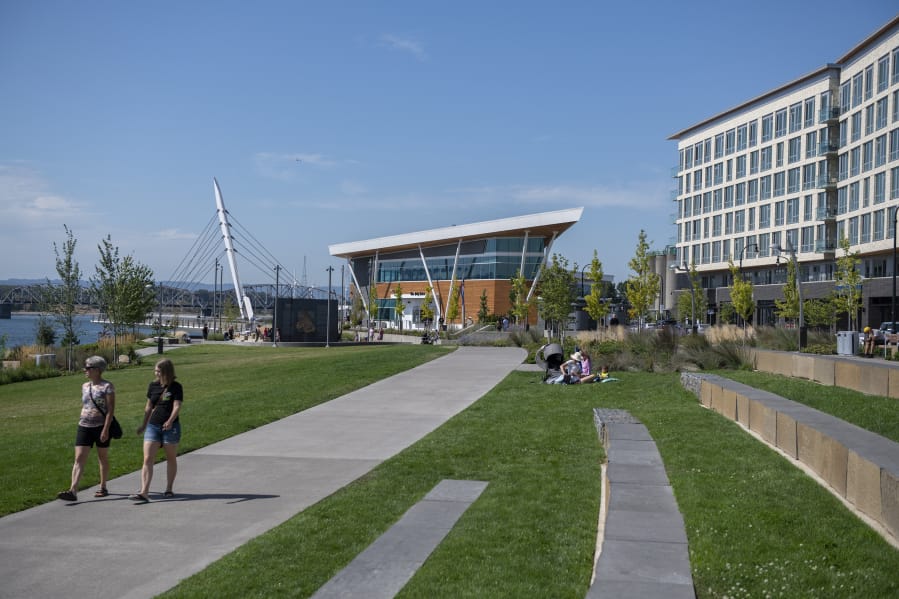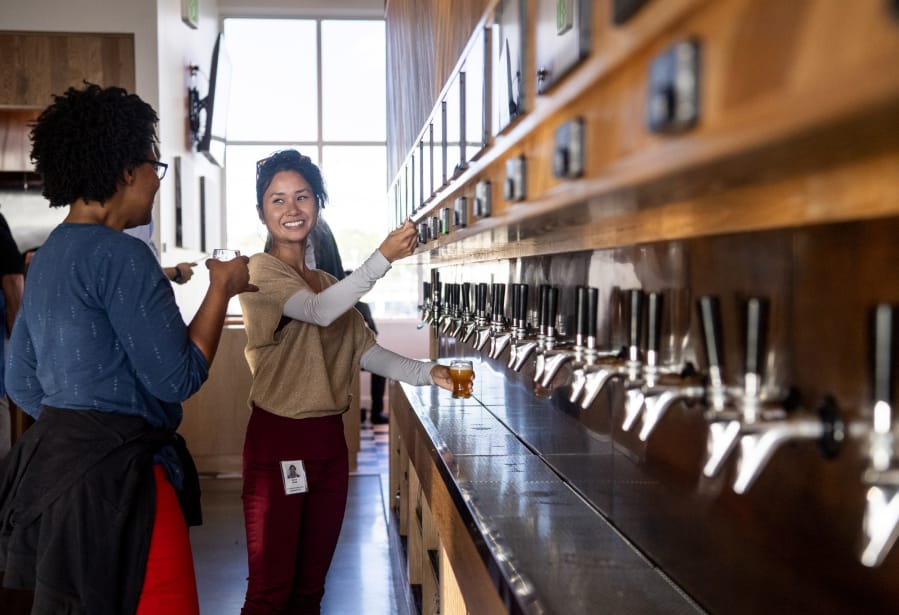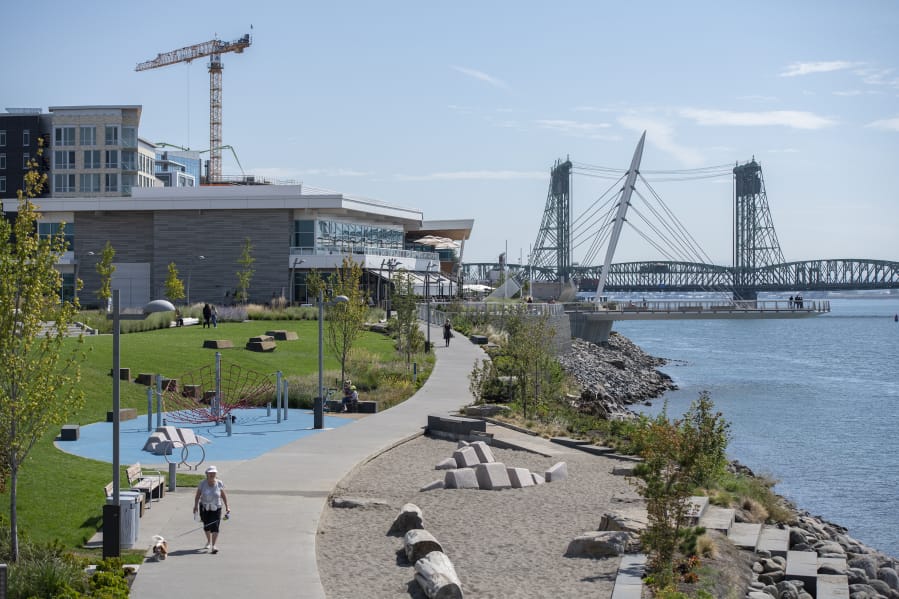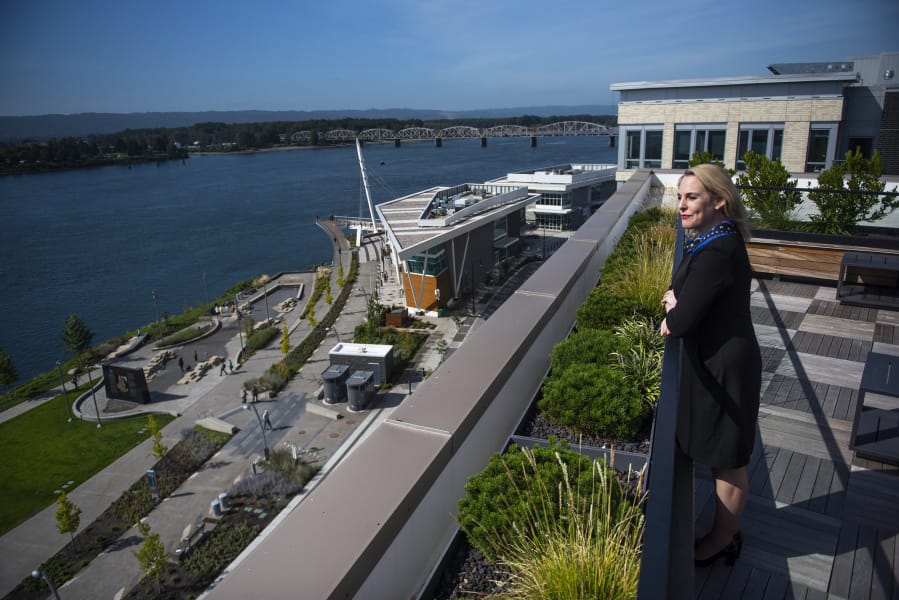One year ago today, an estimated 15,000 people gathered to celebrate the debut of Vancouver Waterfront Park and Grant Street Pier, the central features of The Waterfront Vancouver development.
The development’s first two restaurants had opened a few days prior, but for all practical purposes the Sept. 29 event marked the official opening of The Waterfront Vancouver, a years-in-the-making project to reconnect the city to the Columbia River and transform an abandoned industrial zone into a bustling urban residential and business hub.
At the time, the amenities were limited to the park, the pier and two restaurants. But three still-under-construction towers along Waterfront Way loomed over the proceedings, offering a hint what was to come.
The subsequent year has been marked by a constant stream of announcements and openings. More of the development’s seven “Phase One” buildings have come online, residents have moved in and business tenants have set up shop.







